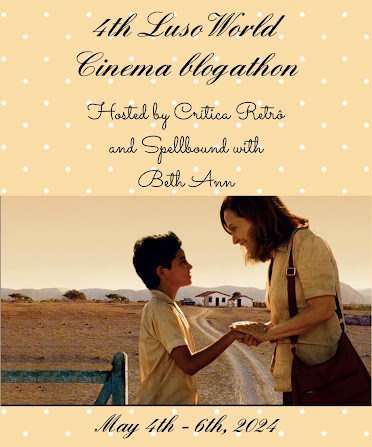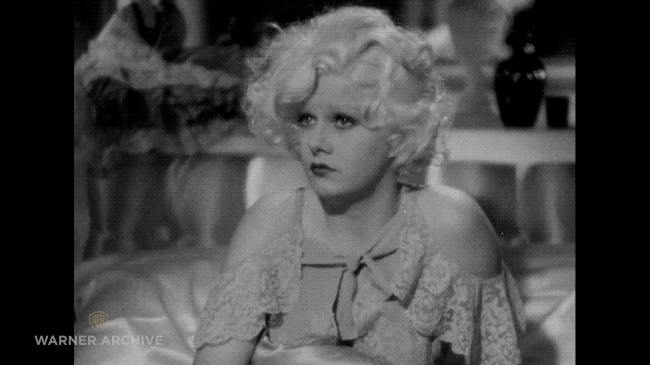
Greta Garbo and Robert Taylor in love, MGM style. Image: IndieWire
It’s only fair to tell you, Dear Reader, that we (as in, yours truly) have an unaccountable bias against Greta Garbo.
We’re baffled by it. Every time we start watching a new-to-us Garbo film, we cross our arms and silently challenge The Great Garbo to impress us. But by the end of the film, we’re clapping and cheering, “You go, Girlfriend.”
So it is with Camille (1936). We were prepared to dislike this film; after all, it’s a showy Drama (with a Capital “D”), complete with a Tragic Heroine, Star-Crossed Lovers and Voluminous Costumes. It’s a Big-Budget MGM extravaganza that exploits your sympathies.
In Camille, Garbo plays a beautiful, debt-ridden courtesan with a nagging cough*. She’s not as young as she pretends to be; nevertheless she cultivates a carefree, shallow persona, one who has, curiously, accepted her Fate.
She meets a handsome but intense young man (Robert Taylor) who’s already been in love with her for months. He’s so smitten with her, in fact, he can describe the outfit she wore on the day he first saw her.
Of course Garbo is intrigued and flattered, but romance proves elusive at first. Taylor disapproves of her friends; she disapproves of his serious approach to life. “If one doesn’t have long to live, why can’t one be frivolous?” she asks.
Frivolity is crucial to Garbo’s character. Without it, she collapses into a bleak view of the world – and herself.

Garbo and her Meal Ticket (Henry Daniell). Image: Flickr
Garbo’s character reveals her dim self-view during a scene that takes place late at night. She is expecting an after-hours visit from Taylor, but a rich Baron (Henry Daniell) unexpectedly drops by. The jealous Baron suspects Garbo is waiting for, uh, a Friend, so he sits down to play the piano, even though Taylor, outside, persistently rings the door bell.
Garbo and Daniell have a strange, accusatory conversation while the bell rings:
Garbo: “You play beautifully.”
Daniell: “You lie beautifully.”
Garbo: “Thank you. It’s more than I deserve.”
It’s a caustic self-appraisal. Despite a life spent Keeping Up Appearances, Garbo’s character never deflects criticism. Instead, she embraces it; a self-loathing comfort food.
We see this trait again, when Taylor’s on-screen father (Lionel Barrymore) pays her a visit. Barrymore tells her, bluntly, that her past will ruin Taylor’s future and that she must give him up. At first she refuses, but she eventually gives in – not because Barrymore’s character is so overpowering, but because she doesn’t believe she’s worthy of love. Her cry is anguished: “I knew I was too happy!”
Her most telling scene, in our opinion, is when she leaves Taylor.
He, unaware that his father has been meddling, returns home to find Garbo, polite but cool, making plans to visit Another Man. His disbelief turns to anger; he says he wants to kill her. “I’m not worth killing,” she says flatly. “I’ve loved you as much as I was able.”
With these two stark sentences, Garbo unveils the raw essence of her character, stripped of coquetry and frivolity. There’s no artifice or manipulation in those words. There’s only a defeated woman measuring her life and coming up Short.

Garbo says she’s bored of Taylor. Image: Britannica
La Dame aux Camelias is an 1847 novel by Alexandre Dumas, fils (son of famed novelist Alexandre Dumas, père). It’s based on a real-life courtesan who died of tuberculosis at the age of 24. Dumas fils re-wrote his novel as a stage play, which later proved to be excellent motion picture material. While many consider the 1936 MGM version to be definitive, the story had been filmed many times before, including seven silent-era versions.
This version of Camille has added poignancy when you consider the producer, MGM’s wunderkind Irving Thalberg, died shortly after filming wrapped. Thalberg, like Garbo’s character in Camille, did not enjoy robust health. When he died of pneumonia in 1936, he was only 37 years old.
We hope you get a chance to see Camille, but we advise you to keep a box of tissue nearby. Even if, at first, you fail to see why Robert Taylor’s character admires Garbo, we think you’ll become a fan by the film’s conclusion.
Notes:
- *We all know a nagging cough never Ends Well in the movies.
- This is part of THE GRETA GARBO Blogathon hosted by In the Good Old Days of Classic Hollywood.
Camille: starring Greta Garbo, Robert Taylor, Lionel Barrymore. Directed by George Cukor. Written by Zoe Atkins, Frances Marion & James Hilton. Metro-Goldwyn-Mayer, B&W, 1936, 109 mins.














I recently watched Camille many (many, many) years after my first viewing. I had avoided it as schmaltz without the Verdi arias. I had a what-the-hell attitude as the movie started and at first kept an arm’s length admiration for the skill of the production. By the end I was a mess. The woman was a by-god spellbinder!
LikeLiked by 1 person
Well said. I was determined Garbo wasn’t going to suck me in, but her skill is incredible. That scene where she leaves Robert Taylor is almost like a punch to the gut, isn’t it?
LikeLike
I hate when they have a nagging cough! I’m like, “No!! Please don’t do this!” That’s a part of Mildred Pierce that I can’t stand. When that poor little girl starts coughing. Argh!!
LikeLiked by 1 person
Exactly! I know what you mean. When I hear a character cough, I start bracing myself right away, even if I’ve seen the film before. (That especially applies to Mildred Pierce, the poor little girl.)
LikeLike
Love the note on the nagging cough! As for the movie, I watched part of it a long time ago but wasn’t really into it and gave up; after reading this, I feel like I should give it another chance.
LikeLiked by 1 person
I hope you have the opportunity to see it again. I didn’t buy Garbo as this character at first; she seemed too old somehow. But it helped when another character addressed her age, and when Garbo started revealing the real person under the façade, I was hooked.
LikeLiked by 1 person
Try Anna Karenina next. The scenes between Anna and her husband (an excellent Basil Rathbone) as they wearily rehash the same fight they’ve had over and over for years is amazingly truthful.
She really was a great actress.
LikeLiked by 1 person
Thanks for the recommendation! Garbo and Rathbone? I’ll definitely give it a go.
LikeLike
Cough Cough! 😛
LikeLiked by 1 person
No! Not the dreaded Movie Cough! 🙂
LikeLiked by 1 person
Worse – it’s the dreaded Blogger Cough! 😉 😛
LikeLiked by 1 person
Bahaha! That is much worse!
LikeLike
This is one of my favourite Garbo films. It’s romantic, tragic, melodramatic, and I love every single second of it. I also think Greta got to wear some of the most beautiful gowns ever made in this film. Great post Ruth.
LikeLiked by 1 person
You’re right – those gowns are incredible. Every single one is jaw-dropping…no wonder Taylor’s character could remember what she was wearing, even months later!
LikeLiked by 1 person
CAMILLE was the first Garbo film I ever saw, way back in my college film history class. I don’t recall my reaction to it; I don’t think I hated it, but it didn’t leave much of an impression on me, either. I was not into classic film in general back then (I only took the class because I needed the credits), so that’s not necessarily a reflection on the film itself. Might be worth revisiting, though.
LikeLiked by 1 person
Rich, it would be interesting to know what you think of “Camille” after watching it again after all these years. I can see how it might not be everyone’s cuppa tea, but with your knowledge of film, I’d be curious to see your reaction.
LikeLike
Love your write-up, Ruth (big surprise). I’m a definite Garbo fan, and I think that Camille is one of her best. Her final scene is all that. BTW, I think that the movie is enhanced immeasurably by the performances of Lenore Ulric as Olympe, and Laura Hope Crews as Prudence.
LikeLiked by 1 person
You’re absolutely right. Lenore Ulric and Laura Hope Crews are fabulous here. Laura H.C. nearly walks away with the movie a couple of times, doesn’t she?
LikeLike
Very insightful, as usual :-D. I can totally see why you would be wary of Garbo – unfortunately, Garbo’s image has become such a cliche (“I VANT to be alone…”). But I agree that Garbo always manages to startle and surprise. TCM just showed a silent film with her last night for its Silent Sunday Night and I was also prepared for a cliched performance but got some wonderful surprises (like Garbo’s understated reaction to a tragic suicide and a little scene where she showed her ability for humor). I think that’s why I love her.
Tam May
The Dream Book Blog
http://thedreambook.wordpress.com/
LikeLiked by 1 person
Tam, your comment is a wonderful summation of Garbo the actress. I keep expecting her performance to be a cliché and instead find an actress of considerable skill. Well said.
LikeLike
Have you seen Queen Christina? It’s a pretty unique Garbo film!
LikeLiked by 1 person
Alas, I’ve not yet seen “Queen Christina”, but I have plans to watch it soon. It certainly sounds unique, like you said. 🙂
LikeLiked by 1 person
Very excellent post, Ruth! Your insights are always wonderful, but I especially appreciate them here. I saw Camille only once some years ago and although I remember adoring Garbo (as I usually do), there’s not much else I can recall. Guess that means it’s time to revisit it!
LikeLiked by 1 person
Oh yes, Michaela, it’s time for you to see this again. I think “Camille” deserves the Love Letters to Old Hollywood treatment. 🙂
LikeLiked by 1 person
You really got me invested in the story while reading your post! Lovely review! I have this on my list of films to see and definitely need to move it up the list. I’ve had a bit more trouble coming to an appreciation of Greta Garbo (though she was so good in Ninotchka), but your description of the layers of feeling that she creates as Camilla sounds spellbinding.
LikeLiked by 1 person
I hope you can see this film. When you do watch it, don’t be put off by the first half hour or so. Garbo’s character can seem a bit much at first, but there is a pay-off. Once she begins a relationship with Robert Taylor, her character starts undergoing some changes.
LikeLiked by 1 person
I will definitely keep that in mind – thanks! That must take a lot of patience for an actor to create a character who only reveals their depth later in the story.
LikeLiked by 1 person
I only had eyes for Garbo while watching Camille. It’s a beautiful film, and her “farewell” scene is played so well. Her dynamics with Barrymore are also very interesting to see.
Great article – as always. Kisses!
LikeLike
I agree re her farewell scene. It’s quite moving. If it weren’t done by such a skilled actress, it would be cringing. But Garbo gives a beautiful performance.
LikeLike
While I’m not a Garbo fan (no matter how many of her films I’ve seen) her performance in Camille is a favorite.
LikeLiked by 1 person
Garbo isn’t to everyone’s taste, that is true. But a lot of people seem to list this film as a Garbo favourite.
LikeLike
Lovely post. Of all the love stories in the cinematic world, Camille is probable the one that’s most effective on me. I cried during the 1921 version with Nazimova and Valentino and I cried during this 1936 version with Greta Garbo & Robert Taylor.
I think Garbo was best in these kind of other-worldly roles, in another place and time, than she was in the few contemporary features she attempted. Maybe she wasn’t a great actress, but she was a beautiful woman and a true star who the camera clearly loved.
LikeLiked by 1 person
Your description of Garbo in “other-worldy roles” is perfect. She really did possess that ethereal quality, and the camera loved her all the more for it.
LikeLiked by 1 person
Oh, wow. This is another for my TBW list. Sounds like something I’d really like. This is awesome: “self-loathing comfort food.” Missed your posts.
LikeLiked by 1 person
I had a hard time connecting with this movie at first. But Greta Garbo has a way of sucking you in without your realizing it. (I guess that’s partly why she’s Greta Garbo.) Make sure you have the tissue handy if you do see this one…
LikeLiked by 1 person